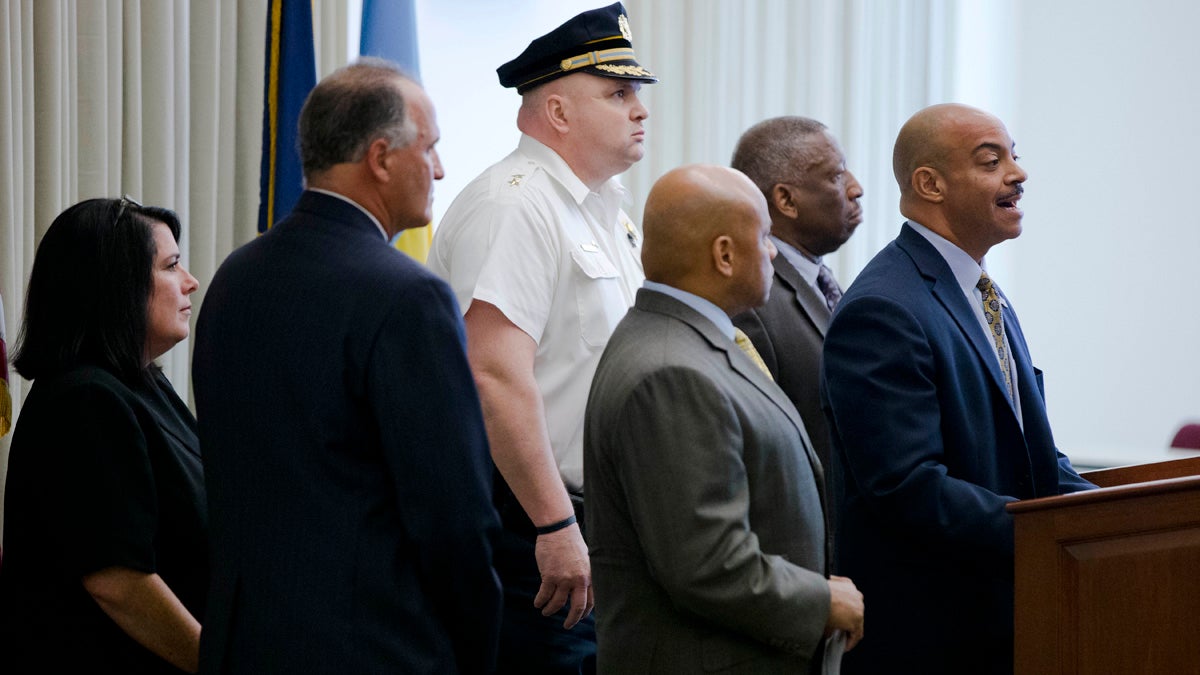To get a better handle on heroin deaths, U.S. aims to get better handle on heroin information
Listen
Philadelphia District Attorney Seth Williams, at podium, speaks during a June news conference in Philadelphia about a drug probe that led to the confiscation of 22 pounds of heroin with a street value of $3.3 million. (AP Photo/Matt Rourke)
The White House unveiled an initiative Monday aimed at reducing the number of fatal heroin overdoses. A crux of the effort involves pairing public health experts with law enforcement to better track the problem.
Heroin-related deaths have nearly quadrupled in the last decade. But Jeremiah Daley, director of the Philadelphia Camden High Intensity Drug Trafficking Area office, said that it’s hard to keep up with what’s happening in real time. Information gathering is fragmented from place to place.
“One of the concerns we’ve had for sometime is state-by-state or county-by-county is no way to address a problem as pernicious and as quickly evolving as has been this issue with opiates and heroin,” Daley said.
Important data about heroin overdoses, arrests and even tainted drug sources may lag for months.
The new initiative directs $2.5 million in five “high intensity drug trafficking areas,” some of which cut through the tristate region. The funding will be used to hire point people and health analysts to better collect heroin data, said Michael Botticelli, director of the Office of National Drug Policy Control.
“I think this collaborative really lets us share information on where we see significantly impacted communities — how we think we need to increase both law enforcement efforts to diminish the supply — but also our public health efforts to deal with overdose prevention and getting people into treatment,” he said.
For area drug control leaders such as Daley, the added intelligence will allow a quicker reaction to developments across jurisdictions and create a better public health and safety infrastructure.
“With this, we’re able to move across those state lines, across those jurisdictions in a much more rapid fashion,” he said.
The announcement follows an increased focus on drug treatment and debate on whether enough resources exist. Last year, Pennsylvania documented more than 2,000 drug-related deaths, New Jersey more than 1,000 and Delaware nearly 80.
“We’re not going to arrest our way out of this, and we need to work with the health community to educate, and treat and prevent,” said Gary Tuggle, director of Philadelphia’s Drug Enforcement Agency, of the new effort.
WHYY is your source for fact-based, in-depth journalism and information. As a nonprofit organization, we rely on financial support from readers like you. Please give today.

